What Your Body Language Says in a Job Interview—Before You Even Speak
You nailed the resume, got the interview, and now it’s go-time. But before you even answer that first question, your body language is already talking—and it could be making or breaking your chances.
Hiring managers pick up on nonverbal cues fast, and if your posture, eye contact, or even the way you walk into the room sends the wrong message, you might be out of the running before you know it. Let’s make sure you’re saying hire me without even opening your mouth.
1. Walk in Like You Mean It
Picture two candidates walking in for an interview. One steps in with their head up, shoulders back, and eyes scanning the room like they belong there. The other shuffles in, staring at the floor, looking like they just got called to the principal’s office. Who do you think makes the better first impression?
Confidence starts the second you enter the building. Walk with purpose, look people in the eye, and carry yourself like you belong in that seat—because you do.
2. Sit Up, Stay Engaged
Slouching, crossing your arms, or looking too relaxed? That reads as bored or disinterested. Sit up straight, keep your hands visible (but not fidgeting), and lean in slightly when they’re talking. Show them you’re interested in the conversation, not just waiting for it to end.
3. Eyes Up, Phone Down
Eye contact is a big one. No need to stare them down like it’s a contest, but avoiding eye contact makes you look nervous—or worse, untrustworthy. Look at the interviewer when they’re talking, glance away naturally, and react with small nods or expressions to show you’re engaged.
And let’s be real—your phone shouldn’t exist in an interview. Not in your hand, not on the table, not even buzzing in your pocket. Silence it, stash it, and forget about it until you walk out the door.
4. Keep the Fidgeting Under Control
Leg bouncing, hair twirling, pen-clicking—these habits scream nerves. And while it’s okay to be a little anxious, constant movement can be distracting. Be mindful of what your hands, legs, and facial expressions are doing. If you tend to fidget, try holding your hands lightly in your lap or resting one on the arm of the chair.
5. Dress Like You Care
If you have to ask, “Does this look okay?”—it probably doesn’t. No, you don’t need a three-piece suit for every job, but you do need to look put-together and professional for the role. When in doubt, go for clean, well-fitted, and slightly dressier than the everyday workwear for that job.
Make Your Body Language Work for You
Interviews aren’t just about what you say—they’re about what you show. Walk in with confidence, sit like you’re engaged, keep distractions to a minimum, and dress the part. Hiring managers are looking for someone who fits, and sometimes, your body language is what convinces them you’re the right choice.
Need help preparing for your next interview? Stay tuned—I’ve got plenty of tips to help you land the job you want.
For further reading:

